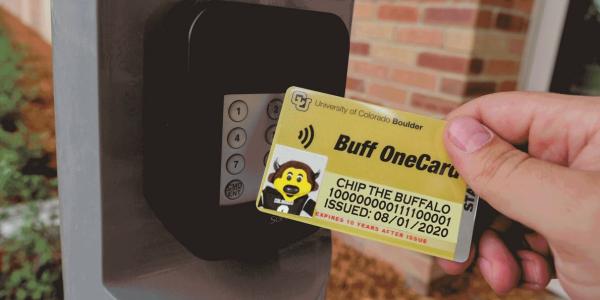Many Colorado students grew up hearing about—and possibly even using—Safe2Tell, a tool that allows anyone to anonymously share concerns about potential violence through an online form, by phone or via an app. Yet people may not realize it’s still available.
Sharing options
For prevention, support resources and reporting options at CU:
For sharing concerns about potential threats of violence, threats or self-harm and getting help for someone:
A statewide program developed after the 1999 Columbine High School shooting and managed through the Colorado Office of the Attorney General, Safe2Tell encourages people to come forward with information on potential violence in an effort to get help before violence or self-harm occurs.
CUPD promotes Safe2Tell as one anonymous option to share information. To learn more about all of the options for referring someone for help, receiving confidential support, or the range of reporting options available for a variety of concerns, visit CU Boulder's Don't Ignore It website.
“Safe2Tell is not just for kids, it’s a viable option for university students, faculty and staff, as well as any community member, including parents of CU Boulder students,” said CUPD Deputy Chief Mark Heyart. “It’s anonymous, available 24/7, 365 days a year, and is a great way to share concerns about things like threatening behavior, even after hours,” he added.
As always, if a crime is in progress or the need for assistance is urgent, CU Boulder Police encourage people to call or text 911 for help.
Safe2Tell tips are relayed to CUPD’s emergency dispatchers, who work with trained staff to carefully evaluate each situation to determine the most appropriate response. If needed, police can be dispatched to assess the situation and take appropriate action.
Depending on the nature of the concern, CU Boulder and CUPD may involve additional resources, such as a licensed clinician/co-responder or the campus Students of Concern Team. CU Boulder’s Student Support and Case Management office connects students with assistance, such as mental health resources, support resources, and intervention for students. If the concern involves employees, the Behavioral Intervention Team will be made aware.
It is important to note that Safe2Tell does not fulfill mandatory reporting requirements for CU Boulder employees. Responsible employees who become aware of protected-class discrimination, harassment, or sexual misconduct are required to report to the Office of Institutional Equity and Compliance, as described here on the Don’t Ignore It website. Employees who are designated as Campus Security Authorities also do not satisfy their reporting requirements by using Safe2Tell and should report Clery Act crimes to CUPD using the CSA Reporting Form
CUPD works closely with CU Boulder’s Center for the Study and Prevention of Violence to use and share research on the warning signs for behaviors of concerns and best practices for violence prevention in schools and communities.
“We know from research on acts of violence that were averted in the U.S. that bystanders who come forward to share their safety concerns are key to violence prevention,” said CSPV Senior Research Associate Sarah Goodrum. “At CU and in Colorado, sharing these tips through Safe2Tell prompts the inquiries that help keep our communities safe and provides the referrals needed to support people in crisis,” she added.
Confidential support resources
In addition to reporting tools, CU Boulder has confidential support resources for the campus community.
-
The Office of Victim Assistance offers confidential support, including free trauma-specific counseling services as well as victim advocacy (helping people know their options and get assistance navigating systems), to CU Boulder students, staff and faculty who have experienced traumatic events, including but not limited to crime, abuse, violence, harassment, stalking, discrimination and more.
-
Counseling and Psychiatric Services offers confidential, on-campus mental health and psychiatric services for a variety of concerns such as academics, anxiety, body image, depression, relationships, substance use and more. This office serves CU Boulder students.
-
The Faculty and Staff Assistance Program offers confidential counseling to serve the emotional and psychological needs of CU Boulder employees. All FSAP staff are trained as generalist counselors and are equipped to deal with a wide range of mental health, personal and work-related issues. You must be a CU Boulder employee to use FSAP services.



